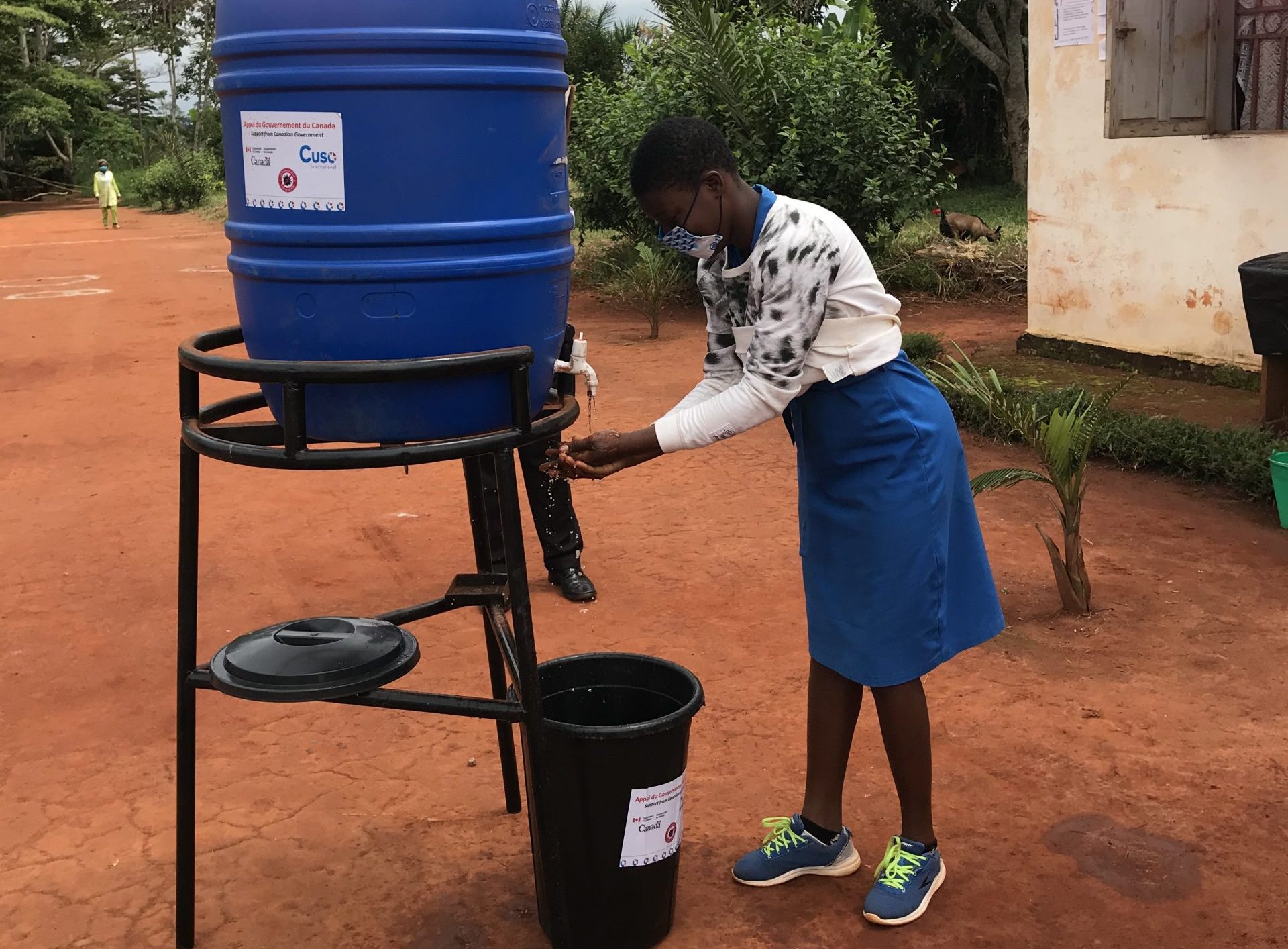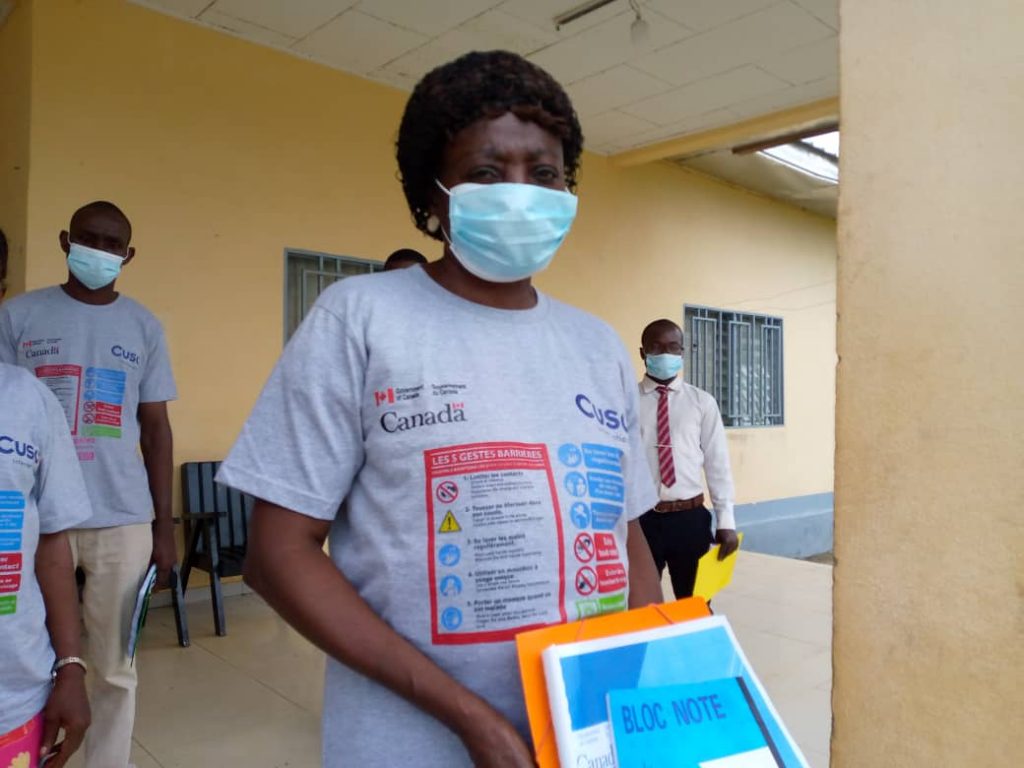Flattening the curve in Cameroon
Story


The COVID-19 pandemic is increasingly gaining ground in remote areas of Cameroon, which has just passed 18,000 positive cases of the coronavirus.
With low level access to formal health care, medical materials or preventative resources, there is danger of further outbreak. To get ahead of this risk, Cuso International has launched a rapid response project targeting areas where the need is greatest, while employing women entrepreneurs in the fight.
“The response focuses on women, who traditionally are less exposed to information and who, because of their mobility outside their households in search of subsistence, are at high risk of contracting the disease,” says Ginette Sindeu, Cuso’s Program Officer in Cameroon.
“There have been several confirmed cases of nurses and health workers contracting the disease by treating patients without protection, as most health facilities do not have protective equipment.”
 Thanks to funding and support from the Canada Fund for Local Initiatives, managed by the Canadian High-Commission in Yaoundé, this project will help communities in the Centre, Littoral, South and East regions of Cameroon flatten the COVID-19 curve.
Thanks to funding and support from the Canada Fund for Local Initiatives, managed by the Canadian High-Commission in Yaoundé, this project will help communities in the Centre, Littoral, South and East regions of Cameroon flatten the COVID-19 curve.
Cuso is distributing hygiene and protection kits to health workers and centres, families and schools. Four women’s empowerment centres are directly involved, raising awareness in local languages through door-to-door visits and community prevention activities.
Women are also being hired in the communities and trained to manufacture the protection kits, allowing distribution to continue throughout the project and after its completion.
“The training in the manufacture of preventive kits—masks and soaps—in the women’s centres will not only contribute to women’s economic empowerment but will also involve them in the response plan against the disease,” explains Ginette.
“Very often in charge of their households from a health point of view, these women will be able to disseminate all their knowledge about COVID-19 within their households and thus be agents for spreading information in their localities.”
Secondary schools have been provided with handwashing devices, water tanks with taps and wastewater collection, and cartons of soap. More than 5,000 people will be reached through the ongoing awareness campaigns.
You can help more women flatten the curve by making a donation to support the manufacture and distribution of COVID-19 prevention kits. Please consider donating today.